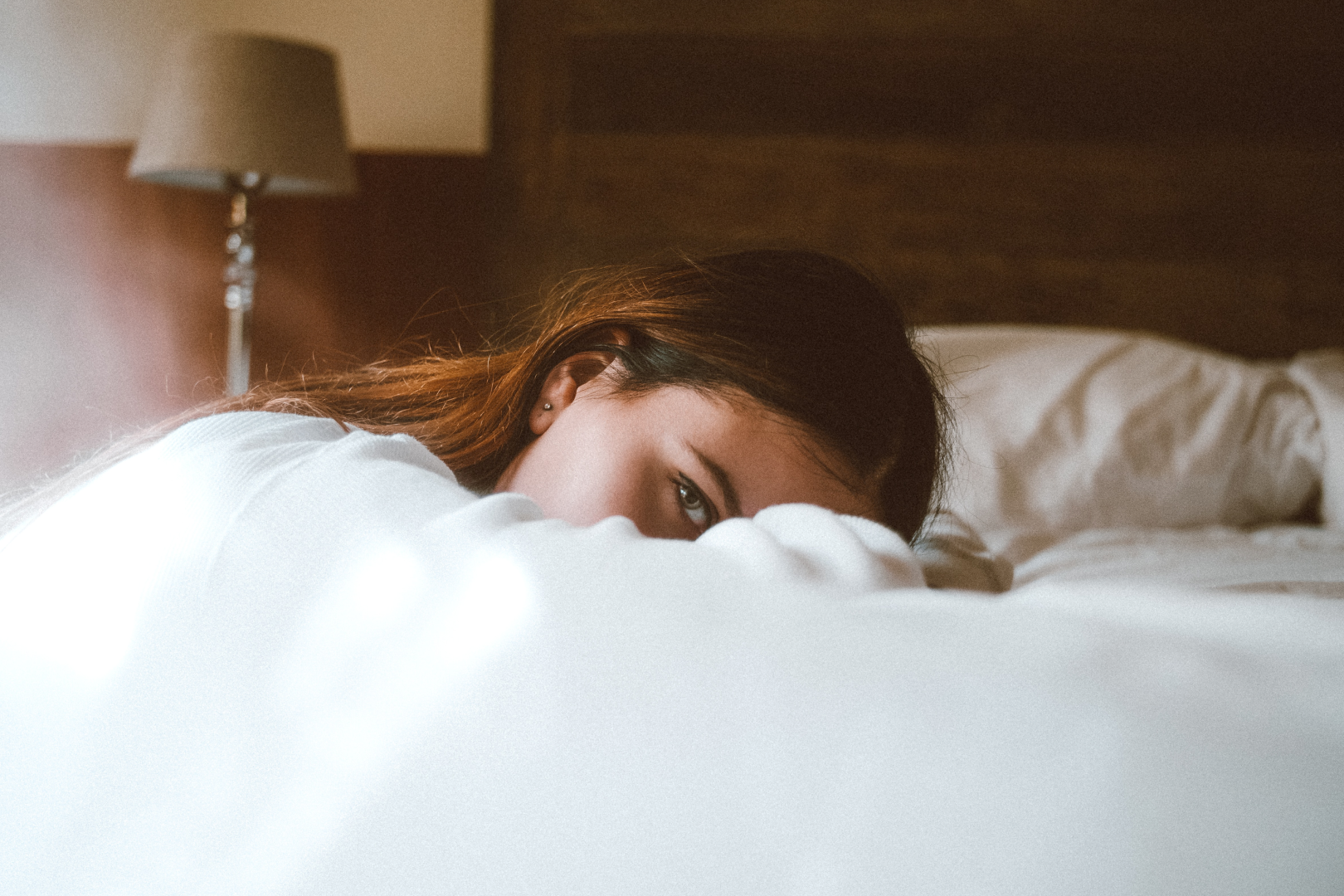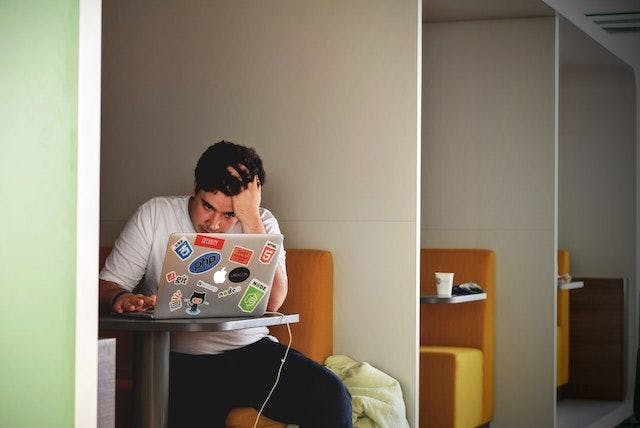The rising sun streams through the bedroom window. The birds are chirping outside. It’s a new day; time to wake up feeling refreshed, motivated, and ready to face the world.
But no. Instead, you feel tired and worn out, although you slept pretty well. Your heart starts to race as anxious thoughts flood your mind.
What’s going on? Is there something unusually stressful in the diary today? Not really.
Could it be one of those health conditions you’ve always worried about? Not likely.
The answer is probably morning anxiety. Yes, anxiety in the morning can happen, especially if you are already very stressed and anxious. Let’s explore what morning anxiety looks like and how to cope.
What is morning anxiety?
Morning anxiety is when you wake up in the morning experiencing the common symptoms of anxiety, such as breathlessness, feelings of panic or dread, irritability, and inability to cope. These anxious feelings make it very difficult to start the day in a positive way.
They can deeply impact a person’s ability to function properly and complete the usual morning tasks, like showering and dressing, getting kids ready for school, or getting to work on time. Morning anxiety can wear off after an hour or two, or it may persist during the day.
People who are under severe or ongoing stress are more likely to experience anxiety first thing in the morning. Those who suffer from generalized anxiety disorder or other mental health conditions are also more prone to morning anxiety.
What causes morning anxiety?
For anyone who has experienced anxiety in the morning, the most pressing question is: why did I wake up scared?
There is a physiological reason behind morning anxiety. In the first hour after waking, the brain triggers a spike of cortisol, the stress hormone, to be released into the bloodstream.
This is known as the Cortisol Awakening Response (CAR). The elevated cortisol response typically peaks about 30 to 45 minutes after awakening and is part of the body’s natural process of ‘kickstarting’ again after sleep.
CAR is not the only contributing factor to morning anxiety. Stress is a major cause too. When stress builds up over time, it can become severe and chronic. This contributes to higher levels of stress hormones frequently flooding the body, priming it for the ‘fight or flight’ response.
This heightened nervous state makes the individual more reactive to stressors. For people who are already chronically stressed, when the natural cortisol spike hits in the morning, it triggers morning anxiety and makes anxiety worse overall.
What are the symptoms of morning anxiety?
The symptoms of anxiety in morning hours are the same that can occur with generalized anxiety at any time throughout the day. People who wake up feeling anxious are faced with a range of physical sensations and emotions that may be unpleasant and even debilitating before they have a chance to start their day.
Some typical morning anxiety symptoms include:
- Fatigue, even after a proper night’s sleep
- Rapid heart rate and breathlessness
- Feelings of dread or panic about the day ahead
- Irritability
- Difficulty concentrating or managing morning tasks
- Stomach ache and loss of appetite
- Muscular tension, aches and pains
- Headache
Common misconceptions about anxiety
For people with morning anxiety, social anxiety or any type of anxiety disorder, it can come with feelings of isolation and helplessness. This may be due to myths about what anxiety really is and why it happens. Let’s dispel some of the common misconceptions, so you can manage your morning anxiety from a more realistic and healthy place.
Myth #1: Anxiety is abnormal or a ‘disease’.
Actually, anxiety is very common. Nearly 20% of the US population has some form of anxiety at any given time. Women are twice as likely to suffer from anxiety than men. Anxiety is a very human response to the stress and challenges of life.
Myth #2: Medication is the only treatment for anxiety.
While some people find relief from anxiety medication, there are several alternative and natural methods that are proven as effective for managing anxiety. These include diet and lifestyle changes, psychological treatments and practicing relaxation.
Myth #3: People who are happy don’t get anxiety disorder.
Anxiety disorders can be triggered by difficult life events such as divorce, losing a job, or a death in the family. However, even if life is going well, everyday stress can cause anxiety in some people. If you feel anxious, it doesn’t mean that you don’t also have happiness and joy in your life.
Myth #4: Anxiety is ‘just’ stress.
Humans are built to cope well with stress, and even extreme stress in short periods. Anxiety, however, is the result of stress that is chronic and unrelenting. Those with an anxiety disorder must look for ways to reduce stress, manage stress, and prevent anxiety from setting in.
How to calm anxiety in the morning
While it is not fun to wake up feeling anxious, you can take steps to prevent morning anxiety and manage anxiety for a healthier morning routine. Here are five ways to calm anxiety in the morning:
Have a good night’s sleep
Quality sleep is an essential component of physical and mental health. Proper sleep hygiene can help you fall asleep, stay asleep through the night, and enjoy healthier sleep overall, which will ensure you are well-rested and better equipped to manage the symptoms of morning anxiety.
Stick to a set bedtime, stop eating two hours before bedtime, avoid alcohol in the afternoons and evenings, and make sure your bedroom is comfortable and inviting.
Skip the caffeine
Caffeine is a stimulant, which means it increases the body’s nervous response. In the first hour after waking up, the Cortisol Awakening Response means that your stress hormone levels are already elevated. Having a cup of coffee as soon as you wake up may worsen the symptoms of morning anxiety. Instead, drink water or non-caffeinated herbal tea, and wait till mid-morning for your regular latte or espresso.
Don’t reach for your phone
Scrolling on your smartphone is not the best way to start off your day. The bright screen and visual elements over-stimulate the brain. Also, checking the news and social media can trigger negative emotions, such as fear, sadness and inadequacy. This is a recipe for morning anxiety.
Research even shows that increased use of mobile phones is associated with increased incidences of mental health issues. Try to keep your phone in another room overnight so you are not tempted to reach for it as soon as you wake up. Better yet, don’t check your phone for an hour after waking. It’s not easy, but it will help ward off morning anxiety.
Get outdoors
Spending time outdoors when you wake up is a good antidote to morning anxiety. Sunshine, fresh air, and natural light help the brain readjust naturally and gradually to a state of alertness. Doing physical activity outdoors first thing in the morning releases endorphins and clears the mind, promoting a sense of relaxation to start the day.
Neuroscientist and health guru Andrew Huberman recommends going outdoors within an hour of waking up, to support the body’s natural morning response.
Practice relaxation exercises
One of the ways to calm the symptoms of anxiety is by teaching the brain to relax. Once you have developed the skill of self-calm, you can become more conscious about how you respond to stress. Relaxation exercises such as meditation or deep breathing exercises are key tools in this process.
Meditation is a daily practice to help you become aware of thoughts and feelings as they arise, accept them without judgment, and let them go. Some people combine meditation or breathing exercises with biofeedback, which enhances the practice and makes it even easier to identify how stress triggers your physiological responses in the moment.
Using the Reflect biofeedback device, simply place your hands on the Orb while you practice becoming more relaxed. The device measures and displays the physiological markers of stress, so you can actually ‘see’ the impact of the relaxation exercise on your anxious symptoms.
Practice relaxation and biofeedback in the morning when you wake up to reduce morning anxiety and restore calm to your routine.
Who do I feel anxious in the morning?
When stress becomes too much, it can turn into anxiety. And when you are feeling overwhelmed and over-triggered by life’s demands, it could result in anxiety that strikes in the morning
Fortunately, there are ways to help manage morning anxiety and you can begin developing new, anxiety-reducing habits even now. Try the 5 suggestions above to manage anxiety in the morning and enjoy a calmer, healthier start to the day.






